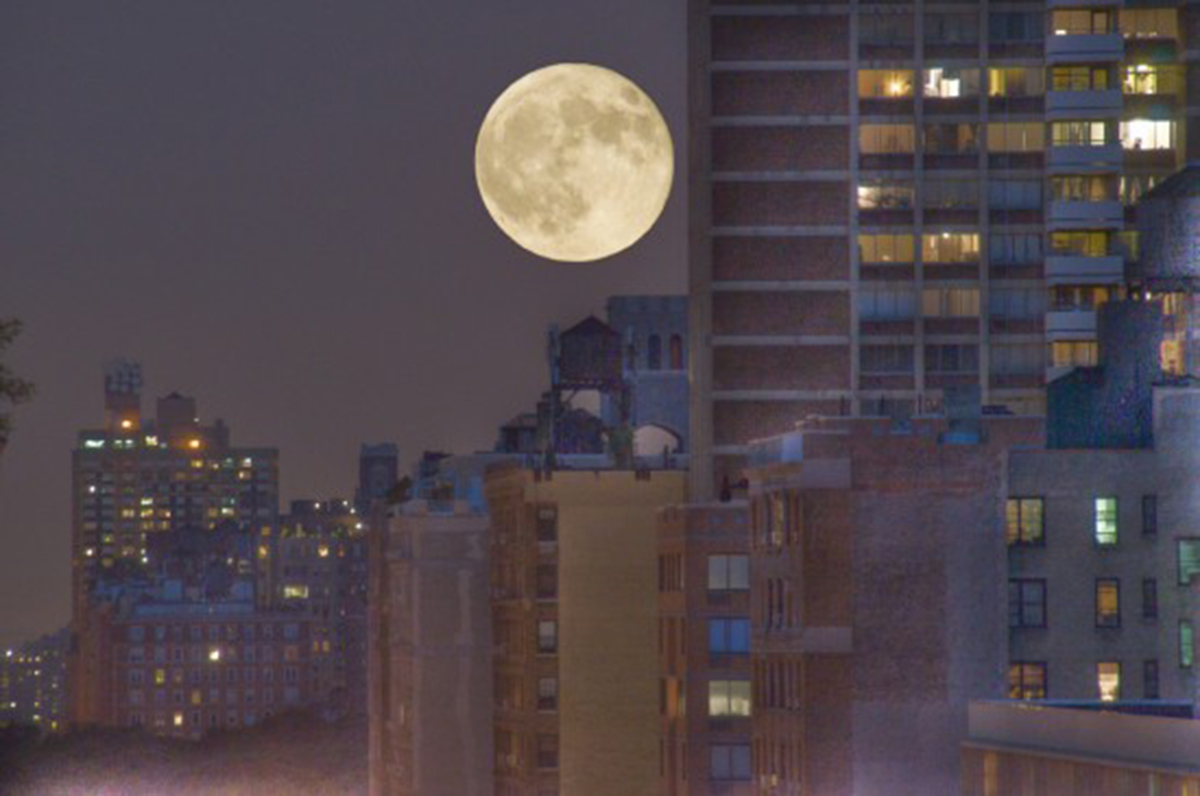Table of Contents
Although many theories about the full moon's effects on the human body and behavior were disproved, at least two phenomena were scientifically shown to correlate with the lunar cycle.

Swiss scientists who studied the human sleep cycle have shown that on the nighs of the full moon the electroencephalogram (EEG) delta activity, the indicator of deep sleep, decreases by 30 percent. The total sleep duration of the study participants on such nights decreased by 20 minutes, and on average it took them 5 minutes longer to fall asleep on those brighter nights. The changes of these parameters point to a decreased quality of sleep. None of the participants in this study knew what were the objectives of the experiments, and in general they were not even aware of the current phase of the moon.
A decreased quality of sleep is known to affect various systems of the body, and chronic problems with sleep may result in serious health complications. Therefore, indirectly, the full moon can indeed affect our health.
Another interesting observation was reported from the statistical study investigating the occurrence and frequency of seizures in people suffering from epilepsy. It was found that the frequency of seizures negatively correlates with the brightness of the moon. However, this effect is not exactly moon-related: when the general brightness of the nights was taken into account (i.e. the days when the skies were clear and the days when the skies were cast by the clouds), the correlation with the moon cycle was not so obvious any longer. It seems that the incidence of seizures is influenced by the level of nocturnal luminance rather than by the moon phase itself.
Read More: Epilepsy: Seizures when sleeping
Psychology at work?
Although some effects of the full moon were confirmed scientifically, the overwhelming majority of them seem to be nothing more than modern myths. It would be reasonable to ask why these myths are so persistent. It might be, at least partially, explained by the psychological phenomenon known as confirmation bias. People tend to notice the events that confirm their suspicions but ignore those incidences when nothing happens. Communal reinforcement also plays its role – the more people talk about some phenomena, the more they believe in them.
Having said so, we have to remember that our studies of human biology, and particularly of human brain, are still in their infancy. The first ever scientifically proven confirmation of the full moon effect on the sleep came only this year. It remains to be seen which other surprises our brain has in store.
In the meantime, you may want to consider taking melatonin supplements if your sleep cycle is negatively impacted by the full moon (keep a sleep diary first to find out if this is actually the case). And if you dare, go outside when the moon is at its most beautiful — because enjoying nature is certainly good for your health!
- Arliss, Jill M., Kaplan, Erin N., Galvin, Shelley L. (2005) The effect of the lunar cycle on frequency of births and birth complications. American Journal of Obstetrics and Gynecology 192 (5): 1462–1464
- Drum, M., Terry, C., Hammonds, C. (1986) Lunar phase and acting-out behaviour. Psychological Reports 59: 987–990
- Barr, W. (2000) Lunacy revisited: The influence of the moon on mental health and quality of life. Journal of Psychosocial Nursing and Mental Health Service 38: 28–36
- Baxendale, Sallie, Fisher, Jennifer (2008) Moonstruck? The effect of the lunar cycle on seizures. Epilepsy & Behavior 13 (3): 549–550
- Martens, R., Kelly, I. W., Saklofske, D. H. (1988) Lunar Phase and Birthrate: A 50-year Critical Review. Psychological Reports 63 (3): 923–934
- Cajochen, Christian, Altanay-Ekici, Songül, Münch, Mirjam, Frey, Sylvia, Knoblauch, Vera, Wirz-Justice, Anna (2013) Evidence that the Lunar Cycle Influences Human Sleep. Current Biology 23 (15): 1485–1488
- Photo courtesy of Hartwig HKD by Flickr : www.flickr.com/photos/h-k-d/4408818849/
- Photo courtesy of Ed Yourdon by Flickr : www.flickr.com/photos/yourdon/3700347848/


Your thoughts on this